Bringing a pet dog home is one of the most exciting and happy moments of your life. Are you aware that certain dog breeds are more suitable for experienced owners? There are specific breeds that may not be ideal for individuals who are new to owning pets.
Our objective is to offer valuable insights regarding dog breeds that may not be suitable for everyone. We will provide information about the drawbacks associated with specific breeds. We will also suggest alternative options that may better meet your needs and preferences. Be it excessive shedding, frequent barking, or temperament concerns, we have it covered. Ultimately, you will learn why beginners sometimes struggle with these specific ones.
Why Choosing the Right Breed Matters
When bringing home a furry friend, many people focus on adopting a cute pup from a shelter or finding the cheapest option online. However, there’s so much more involved in ensuring you and your new pal are happy! Every dog breed is different and needs individualized care. This is a primary reason why we come across families struggling to care for their new pets. Let’s explore why picking the right breed counts!
Energy Levels
Every breed has varying energy levels. Envision spending an entire day engaged in playful activities with your lively poodle. Could you keep up with its boundless energy and need for companionship? Conversely, imagine a day at home where your lazy greyhound prefers to snooze. Does this leave you wanting more excitement?
Selecting a dog whose energy level aligns with yours is key to ensuring long-term happiness. Choose a dog that matches your own energy and lifestyle. This way, you can create a harmonious bond that brings joy and fulfillment to both you and your furry companion.
Health Issues
Health concerns differ between breeds. Have you ever heard someone say they adopted a cat because they need fewer doctor’s visits? Well, the same goes for dog breeds! The size and genetics of each type of dog result in various health complications down the road. Take note of how much time and money you will invest in veterinary checkups and medications if you bring home a breed that is prone to health issues.
Grooming Needs
Grooming requirements differ widely. You won’t believe how many dogs spend half their lives sitting still, waiting to dry after baths, or being brushed! Are you ready to put time and effort into cleaning out ears regularly too? That’s where low-maintenance dog breeds come in handy! By choosing a low-maintenance dog, you can enjoy a more convenient and hassle-free grooming routine, allowing you to focus on the joys of pet ownership without sacrificing your valuable time.
Training Effort
Trainability depends on the breed: Have you heard horror stories of uncontrollable Pitbulls or easily scared Poodles? There’s truth behind those stereotypes based on breed personality types. Consider how much effort you plan to exert teaching good behaviors if you have other options such as obedient herders or calmer hounds. By selecting a breed that naturally exhibits the qualities you seek, you can set yourself and your canine companion up for success while fostering a harmonious and well-behaved bond.
Ultimately, choosing a pet without research leads to potential neglect later on if things don’t click!
15 Least Suitable Dog Breeds for Beginners
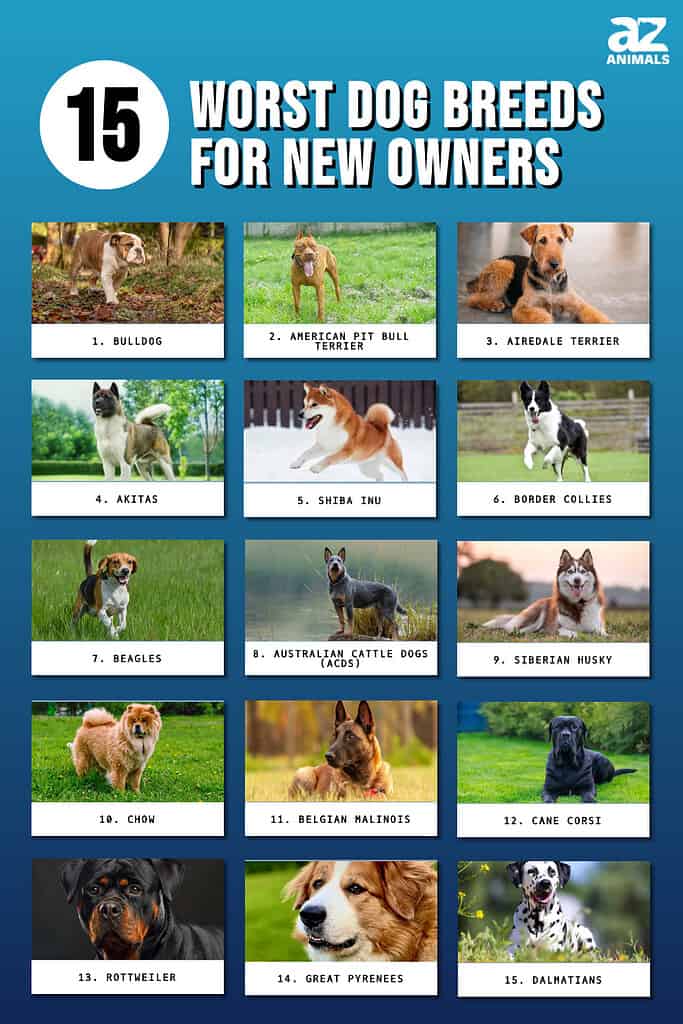
1. Bulldog
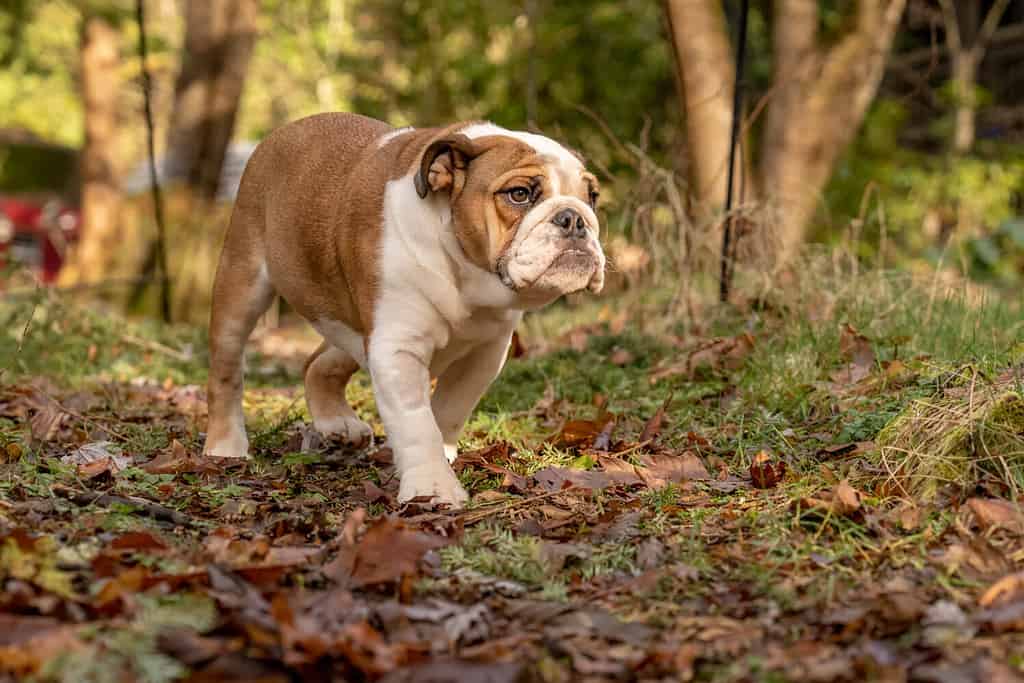
Bulldogs may not be the best choice for novice dog owners due to potential health issues and stubbornness.
©Danita Delimont/Shutterstock.com
The bulldog is delightful and goofy by nature. Their inclusion in the list of unfavorable canine breeds for newbies is not due to aggression or grooming concerns. Rather, it stems from their many health issues, which can be challenging for inexperienced dog owners. These dogs feature flattened faces, leading to respiratory difficulties. Additionally, their stubborn disposition and resistance to training can further compound the challenges of caring for them.
2. American Pit Bull Terrier
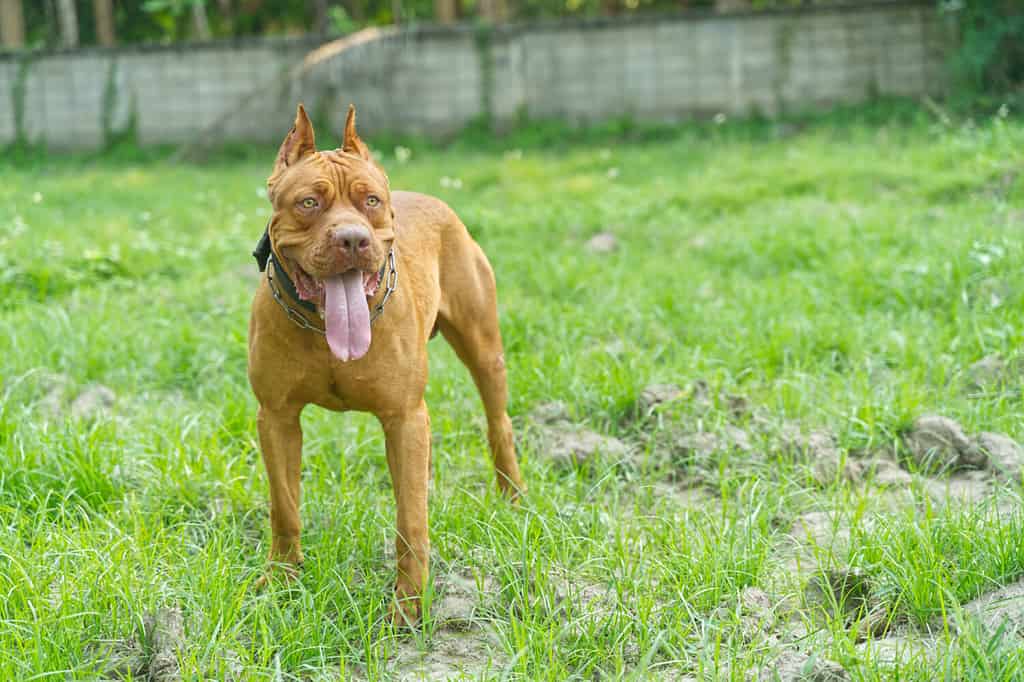
The American Pitbull Terrier can be a loyal companion, but make sure you are ready to put in the work.
©KruBeer Photo/Shutterstock.com
Pit bulls were once used in blood sports like bull-baiting and bear-baiting. They retain some of that cruelty passed down from their ancestral counterparts. This genetic makeup may translate into excessive aggression against both animals and humans. Furthermore, a lack of ample play time leaves them feeling pent up with unspent energies, leading to destructive behaviors.
Due to their hunting background, American pit bull terriers have an innate drive to hunt small creatures. Sometimes they see children as possible targets. Ownership of a pit bull also entails a steep learning curve. These canines are intelligent but are prone to testing boundaries set forth by their human caregivers. The fearsome reputation pit bulls carry in society also adds pressure for new pet parents who seek seamless integration into their daily lives.
Even so, they’re easily trained if given the right motivations and techniques. But beginner owners should approach training with care and patience.
3. Airedale Terrier
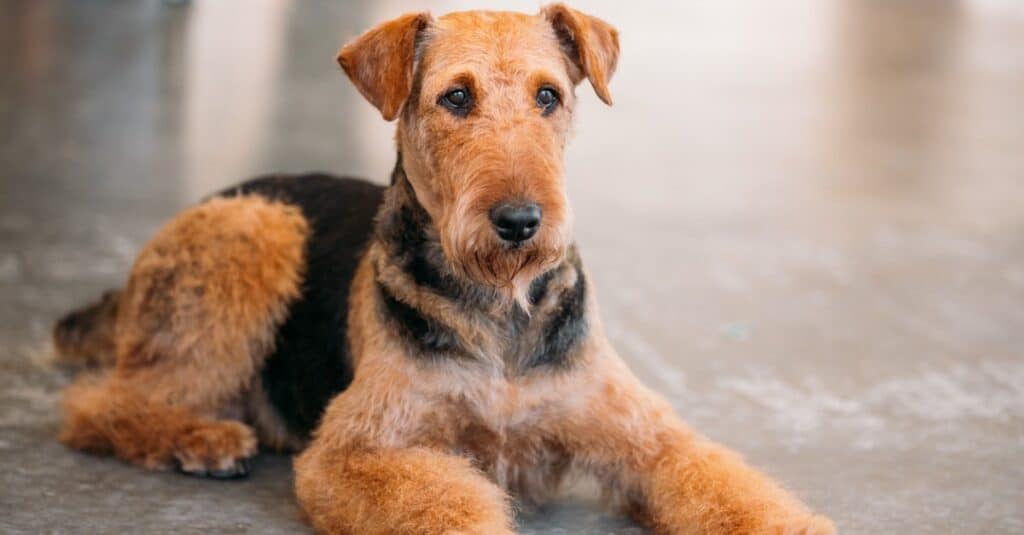
This breed is not suitable for inexperienced pet owners due to its high energy levels and playfulness.
©Grisha Bruev/Shutterstock.com
The Airedale terrier is unique compared to other dogs. Although it looks like most other terriers, its size sets it apart because it is bigger than the rest. Due to this difference, their behavior also differs. When separated from their friends or family members, they tend to feel upset and do things that could cause trouble. Their playful nature may lead them to dig many holes in lawns or gardens. Moreover, due to their high activity levels, they often push youngsters over. They need to be monitored if playing with children so that accidents can be avoided.
4. Akitas
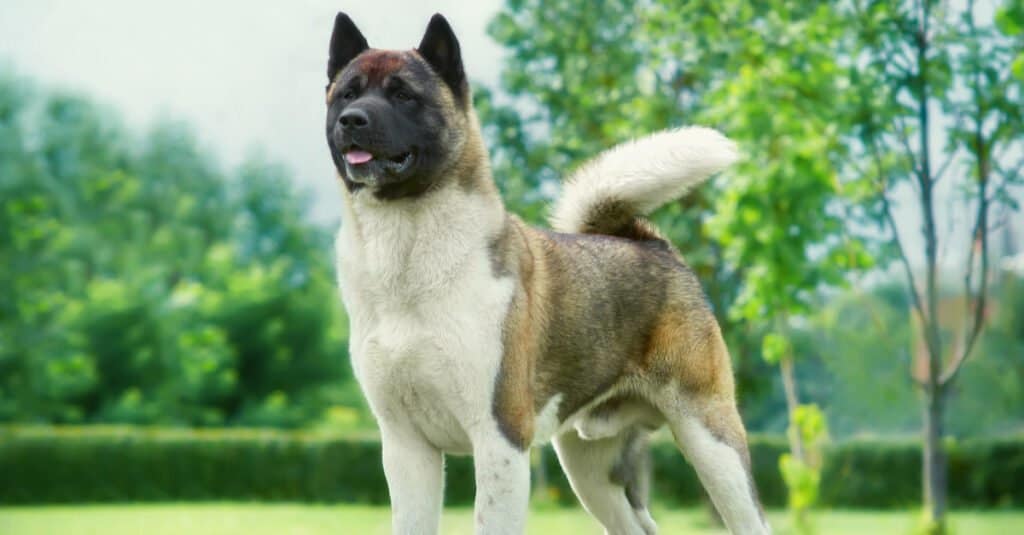
If you’re a first-time dog owner, beware of Akitas! They can be large and dominant, making them hard to train.
©Kseniia Kolesnikova/Shutterstock.com
Akita dogs are very big! They can stand up to 3 feet tall (at their shoulders) and weigh from 70 to 130 pounds. First-time dog owners who haven’t owned a large breed of dog may struggle to handle such a huge animal.
Akitas can also be tricky to train because they tend to be dominant. They tend to think one step ahead of you sometimes! Their natural loyalty also leads to lots of protectiveness. These dogs are quick to confront and cause conflict with anyone they perceive as a stranger attempting entry into their territory. Training Akitas can present challenges due to their inherent dominance and ability to outwit their owners at times.
5. Shiba Inu
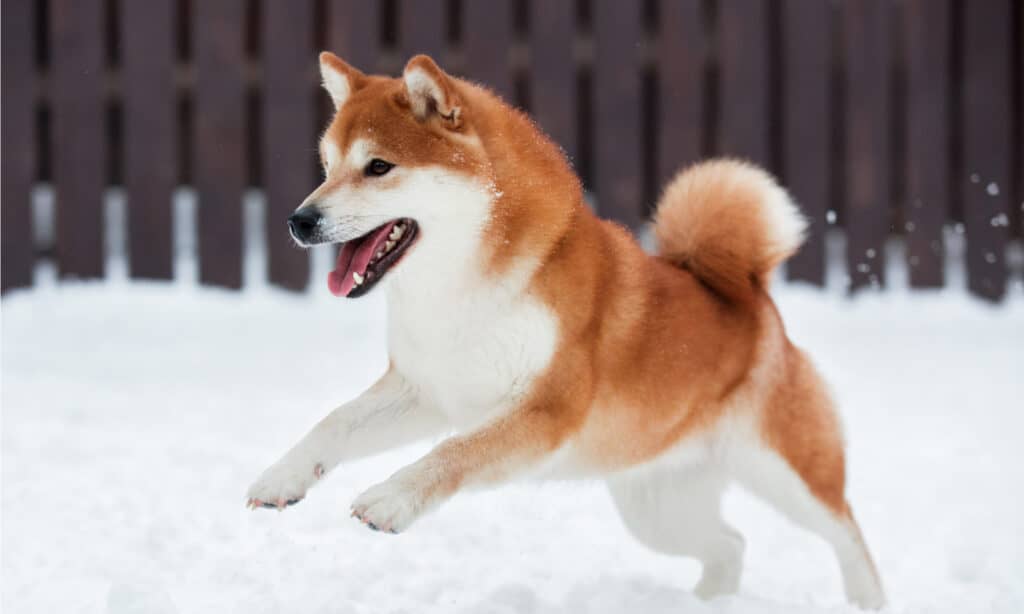
The Shiba Inu may not be the best choice for new dog owners as it requires patience and consistency when training.
©OlesyaNickolaeva/Shutterstock.com
There are several reasons why having a Shiba Inu might not be ideal if you haven’t owned a dog before. First, Shiba Inus are intelligent dogs that ranked average at 93 out of 138 on the Stanley Coren scale of dog intelligence.
Even though they’re small, their average intelligence makes them stubborn during training. Obedience training requires lots of effort, patience, and consistency; all qualities are more likely found in experienced dog owners than in beginners. Finally, Shiba Inus are independent. They prefer to spend time alone and aren’t overly affectionate or sociable. Consider those thoughts when considering bringing a Shiba Inu into your home.
6. Border Collies
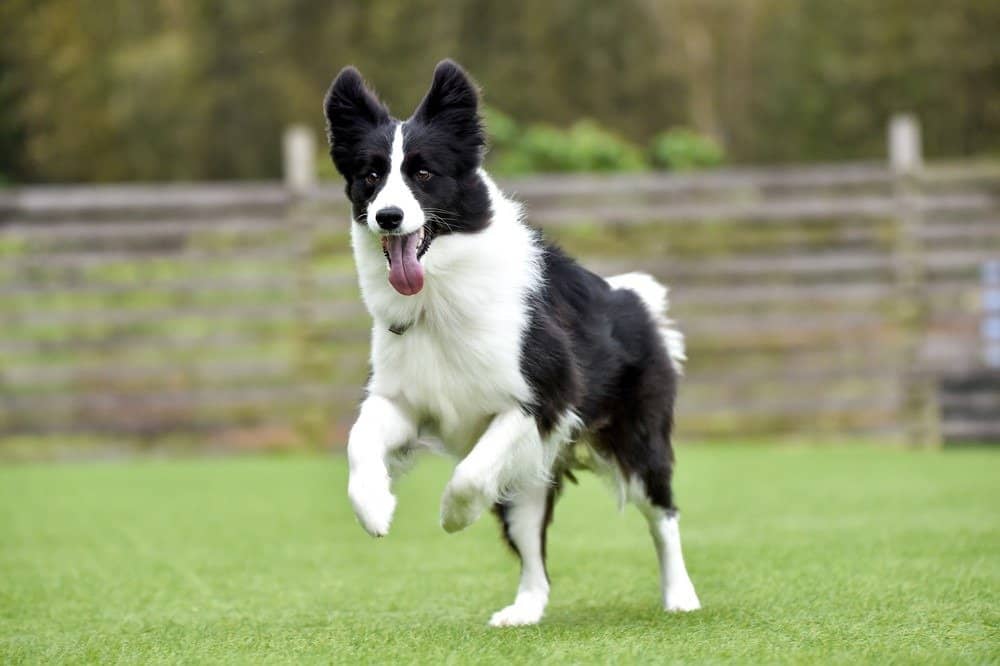
Border collies have an intense energy that new owners should be aware of if considering getting one.
©studio hoto/Shutterstock.com
Border collies may appear adorable and cuddly, but these fluffy creatures belong in experienced hands. They were born with brains like nobody else’s business. Yes, you heard us right — they ranked number one for intelligence! Their enormous intellect and intense energy make them more demanding than other dogs.
Due to their sharp brains and boundless vigor, border collies cannot simply sit around or sleep throughout the day. They hunger for constant entertainment and activity! Without such engagement, they’ll whine, dig holes, and even growl if things don’t go according to plan in their eyes. To sum it up, owning a border collie requires lots of action-packed fun and expertise, which would likely exceed the abilities of a first-timer.
7. Beagles
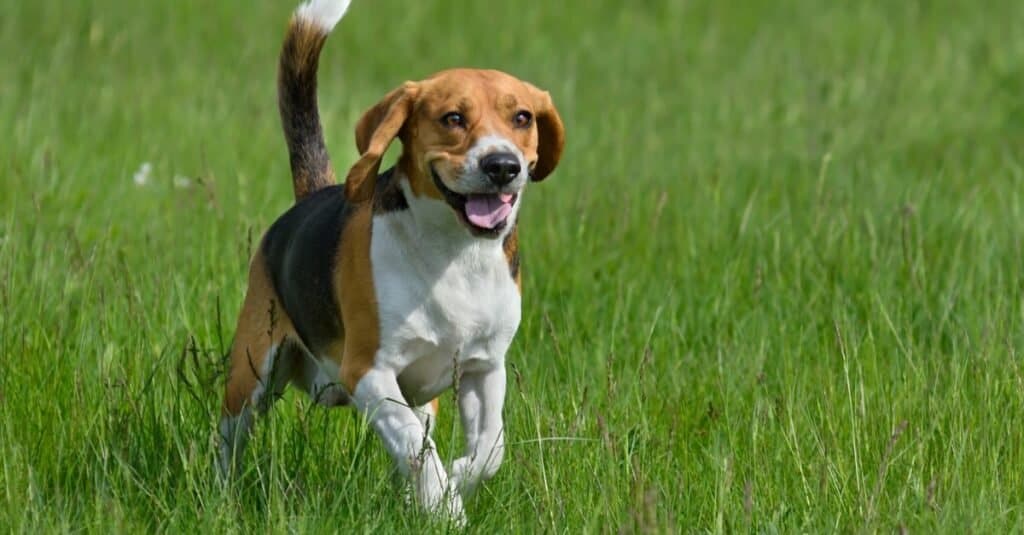
Beagles may be cute, but they take lots of patience and training to keep their adventurous instincts in check.
©eAlisa/Shutterstock.com
As hunters by design, beagles have an innate urge to roam freely, sniffing every scent they find. They take off on adventures, leaving their anxious humans behind. Though they seem to adjust to almost any living situation, one particular quality can get frustrating — barking. While many love their melodious howling, uncontrollably barking nonstop leads the dog to become hoarse. They need intensive focus and discipline to deter excessive barking habits.
Beagles rank near the bottom of dog intelligence. They need 80-100+ repetitions before finally understanding. Good luck holding their focus! Despite being cute and friendly, beagles need experienced hands due to their adventurous instincts and unique learning difficulties.
8. Australian Cattle Dogs (ACDs)
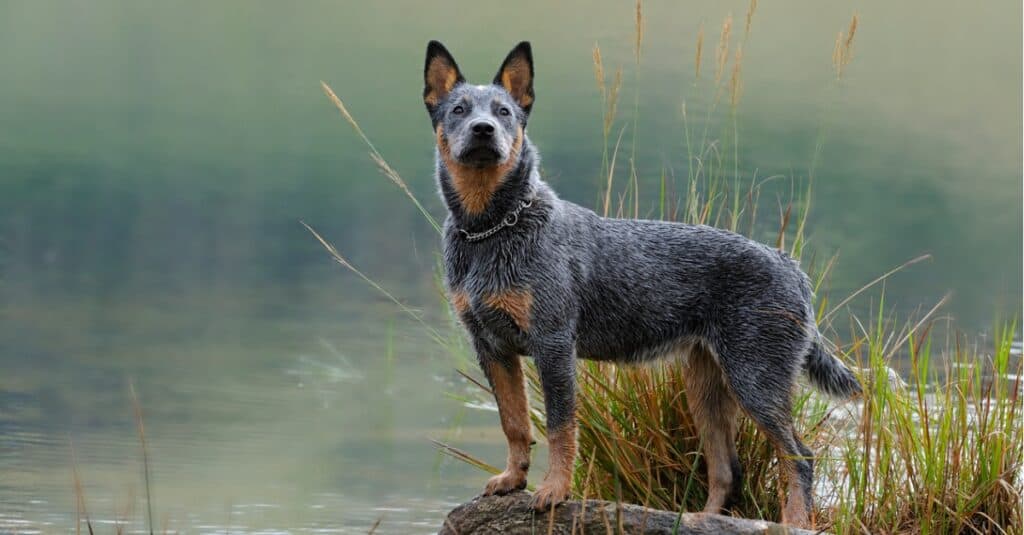
If you’re prepared to follow an ACD’s orders and take them on regular adventures, then they may make a good pet for you.
©iStock.com/WOLFAVNI
Australian Cattle Dogs (ACDs) were bred to assist farmers and ranchers with managing livestock. They also inherited a stubborn side that makes them independent. Additionally, they can get quite aggressive around strangers.
ACDs have also used their intelligence to manipulate their owners into doing what they want! Moreover, they need lots of exercise daily to keep up with their herding genes. If you’re not prepared to go on walks, runs, or hikes regularly, you might as well reconsider bringing an ACD home. However, it doesn’t mean Australian Cattle Dogs aren’t adorable or worth owning someday.
9. Siberian Husky
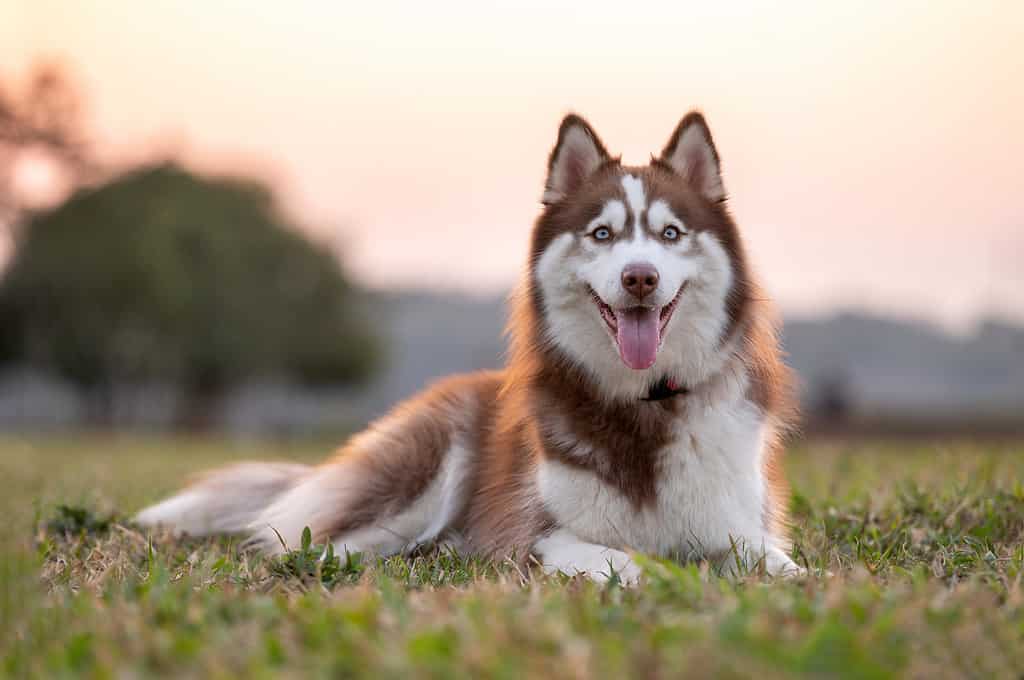
Siberian
huskies demand daily physical activity and lots of patience when training — not good for newbie owners.
©iStock.com/Elayne Massaini
As beautiful as they appear, the mere looks of Siberian huskies mustn’t trick you! These fluffy friends have a knack for making your life hectic! They’re energetic and enjoy long walks and runs every single day. If you want one of these guys, prepare for daily exercise sessions. Plus, many huskies are looking for second chances at adoption centers due to reasons that might frustrate beginners.
Although they fall mid-range in terms of overall intelligence, huskies need extra effort when learning tricks. Repeating commands could take 25-40 tries before getting it right. Grooming isn’t easy, either. Expect plenty of fur shedding.
Though gorgeous and often seen in movies and TV shows, huskies aren’t ideal matches for most novices unprepared to handle a wild wolf in sled dog clothing.
10. Chow
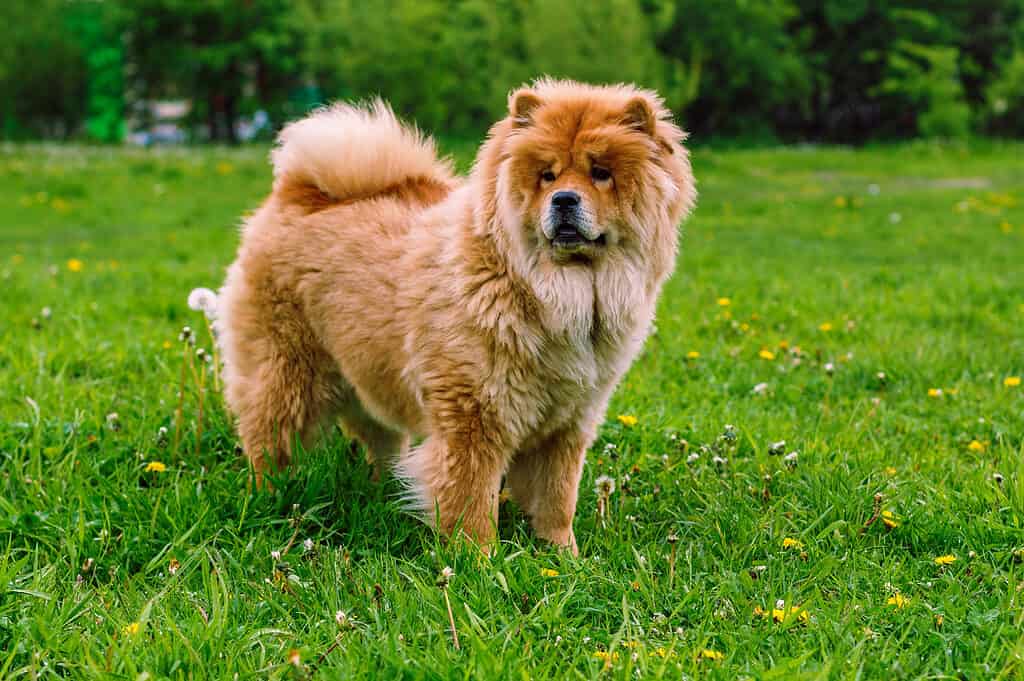
A chow may look cuddly but they require dedication, patience, and grooming to keep them healthy and happy.
©Flower_Garden/Shutterstock.com
Adorned with an iconic blue-purple tongue that adds a pop of color and the fluffy double coat that keeps them warm, the chow’s appeal cannot be denied. However, owning one could bring surprises that require dedication and commitment.
Their reserved demeanor makes them unfriendly toward strangers. While some adore their laid-back approach to socializing, others might find it challenging. To those who seek affectionate cuddling and bonding, fear not! A chow’s affection comes with time and persistence. In terms of exercise requirements, chows exhibit low levels of activity.
Their coat poses challenges, too. Frequent brushing and bathing will help maintain their appearance and prevent matting, shedding, and skin irritations. Lastly, intelligence doesn’t rank high on a chow’s resume. Chows require infinite patience and persistence when learning — something beginners might struggle with.
11. Belgian Malinois
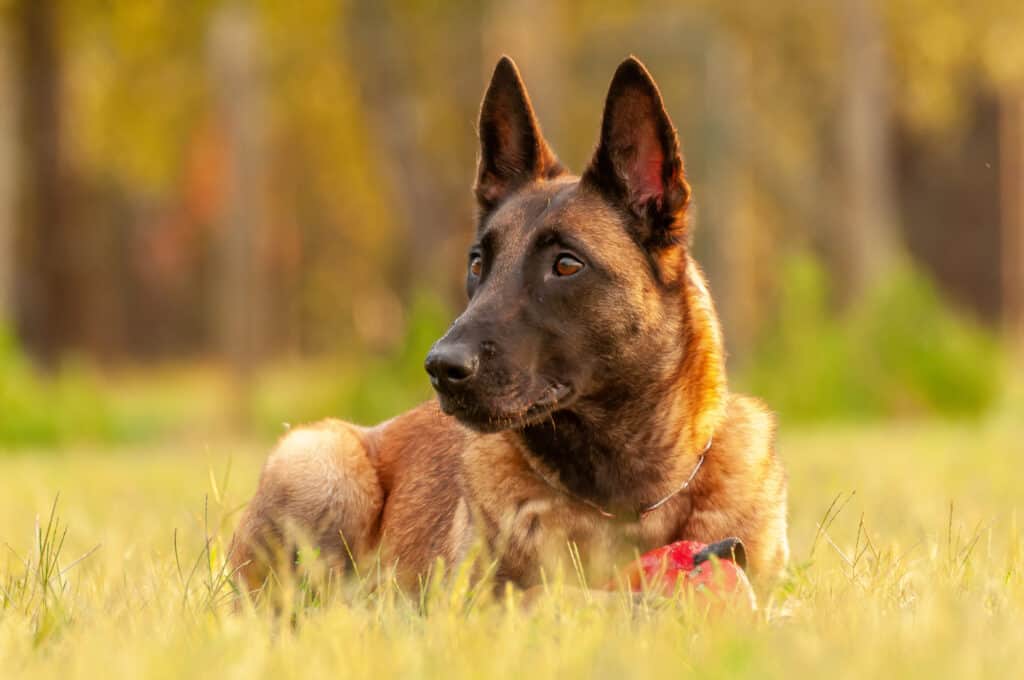
Belgian Malinois have lots of energy and drive, making them more suitable for experienced dog owners.
©Nordantin/Shutterstock.com
Belgian Malinois are extremely intelligent, like tiny geniuses trapped inside dog bodies. They’re bred for heavy-duty tasks like detecting explosives and pursuing criminals. These attributes make them an excellent choice for experienced dog owners.
Let’s talk about what makes them unsuitable for first-timers. The Belgian Malinois has boundless energy and needs more exercise and stimulation than one can imagine. They tend to act out when understimulated. Don’t expect them to curl up in front of the TV after dinner. Nope, these go-getters thrive on action, which can translate into unwanted activities if bored.
Now, here comes a sticky situation: biting. Belgians are descendants of guard and protection dogs, meaning they were born to take matters into their teeth, literally! As a result, you must invest in proper socialization from a young age. You must ensure they understand the difference between playful and aggressive behavior.
12. Cane Corsi
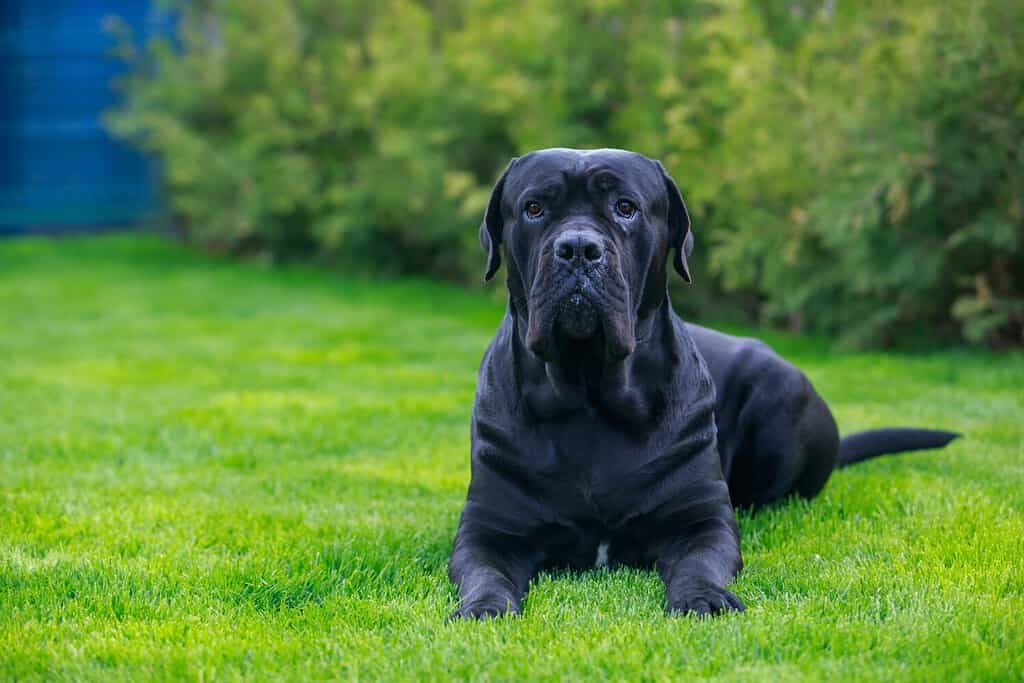
The Cane Corsi’s fierce protective nature requires patience, training and lots of exposure to different experiences.
©Olga Aniven/Shutterstock.com
Imagine standing face to face with a giant dog, its eyes staring deep into your soul. Do you experience an icy shiver down your back? This is what you could experience when encountering the Cane Corsi. Their fierce appearance alone sends shivers down our spines. Not all fun and games, unfortunately.
Their intense focus on protecting those they care about can often manifest in aggression toward people who threaten their loved ones. While this protective nature doesn’t mean they will snarl at visitors, they need ample exposure to different experiences throughout their lives. However, they are smart as whips, so teaching them things comes naturally.
13. Rottweiler
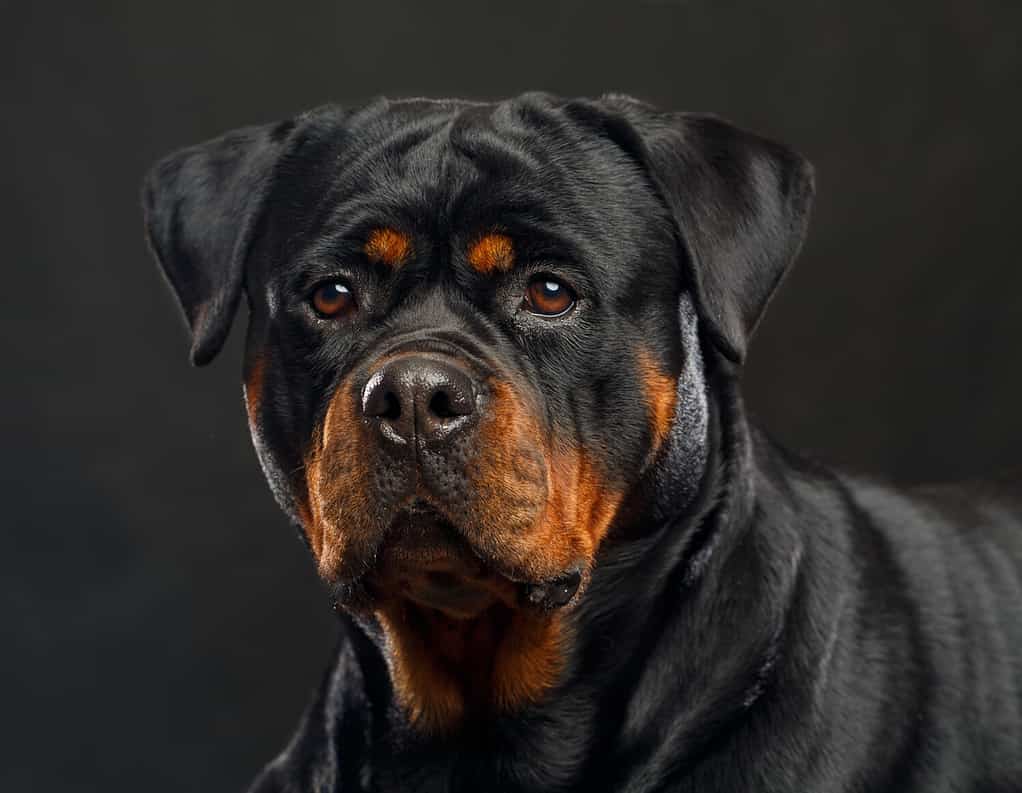
Rottweilers may be great guard dogs, but they are not suitable for new owners without proper guidance.
©TrapezaStudio/Shutterstock.com
Rottweilers are big and strong dogs. First, they were bred as warriors. The problem is, sometimes they fight even when we don’t want them to. Secondly, these canines can act super loving toward their families. Still, that does not make them ideal for first-timers since they tend to show rudeness to folks and dogs they do not like.
Moreover, if anything gets in between your Rottweiler and his snacks, you better watch out for him. Since he was born a fighter, it takes more effort to teach him manners compared to regular dogs. Even though they grow old and lazy later in life, they remain stronger than most dog breeds, making it hard to handle them during unpredictable scenarios. Rottweilers are generally unsuitable for novices without assistance from experts.
14. Great Pyrenees
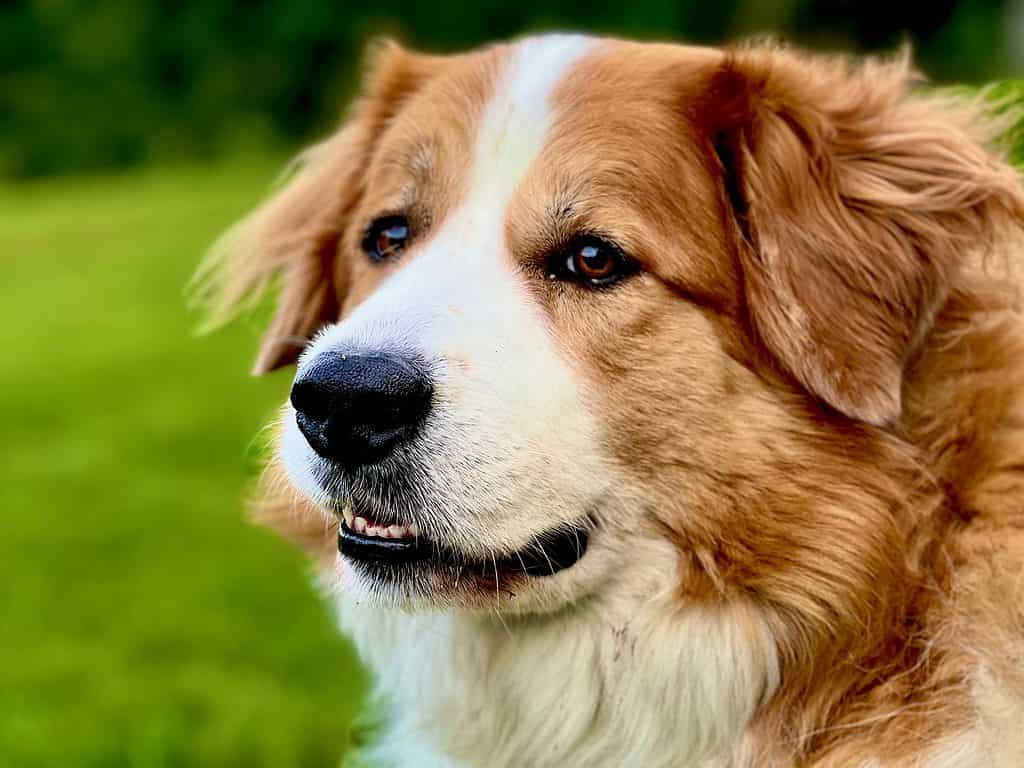
Great Pyrenees may be a handful for first-time owners due to their loud barking, heavy shedding, and drooling.
©Chrissi Martin/Shutterstock.com
Do you love big fluffy white dogs? Great Pyrenees may seem like cuddly teddy bears, but they come with many responsibilities and unexpected twists. First, they were originally designed to care for animals by living outdoors in mountainous regions filled with wolves, bears, and other scary creatures.
Having the Great Pyrenees inside your home can provide a sense of security, but they can become restless indoors over time. Their loud barks could upset you (and the neighbors). Therefore, they require ample space, exercise, and specific training to adapt to urban environments. Furthermore, their heavy shedding and tendency to drool uncontrollably can pose additional challenges.
15. Dalmatians
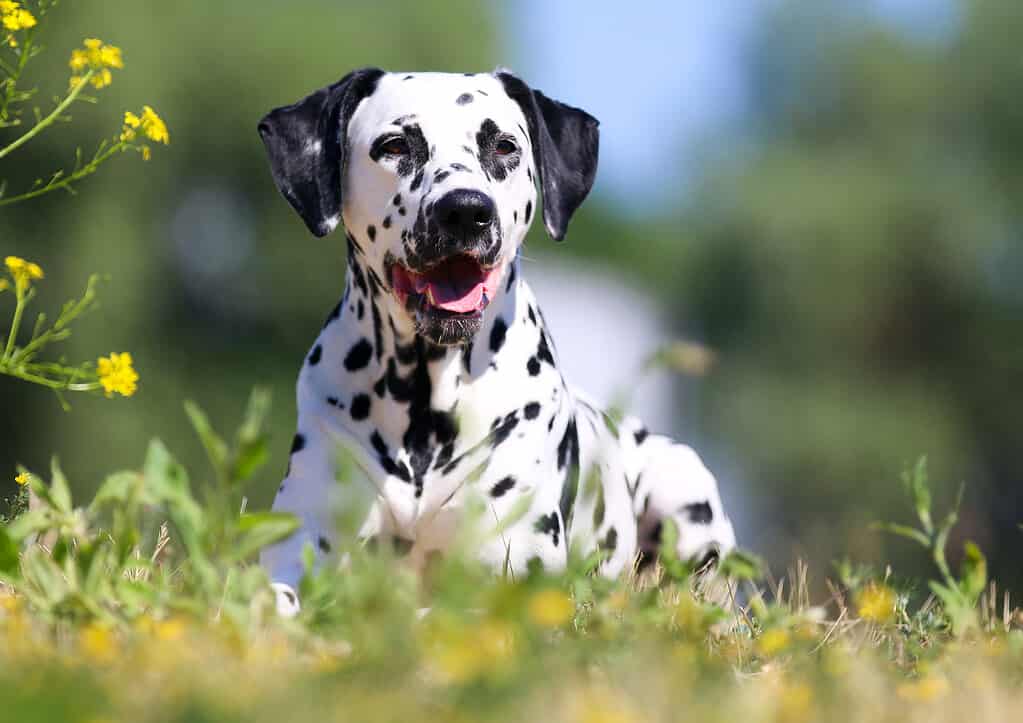
Taking on a
Dalmatian
may be too much for new pet owners as their high energy can make them hard to train.
©Lisjatina/Shutterstock.com
Who remembers those spotted Dalmatians from the movie 101 Dalmations? You should know that real-life Dalmatians are not easy-peasy pals like their animated counterparts. They look cute and fluffy, but these dogs are packed with energy. Dalmatians’ historical training to accompany firetrucks complements their active personalities even today. The trouble is, they never retired from this job (mentality-wise)! And all that excess energy can cause some major issues. Furthermore, they can be stubborn, making it harder for newbies to train them.
Final Take on Worst Dog Breeds for New Owners
Deciding upon the perfect furry friend requires careful consideration indeed! For aspiring canine parents, choosing the correct breed is crucial. However, the fact remains certain breeds can be complicated for newbies. The adorable wrinkled face of the bulldog camouflages its numerous health concerns. Meanwhile, the powerful American pit bull terrier’s aggressive nature presents challenges for any beginner owner who isn’t prepared. Throw in other potentially challenging breeds, such as Airedales, Akitas, and more, and things get even more complicated.
Ultimately, embracing responsible ownership requires an understanding that no two dog breeds are alike. Fortunately, with enough prior research, expert advice, and dedication, even the most inexperienced dog owners can find what works for them.
Summary of Worst Dog Breeds for New Owners
Here’s a recap of the breeds that are not suited to those who have no prior experience owning dogs.
| Number | Dog Breed | Difficult Trait |
|---|---|---|
| 1 | Bulldog | Many heath problems |
| 2 | American Pit Bull Terrier | Natural aggression |
| 3 | Airedale Terrier | Exuberance and high energy levels cause challenges |
| 4 | Akitas | Large size and domineering manner are difficult to handle |
| 5 | Shiba Inu | Hard to train and not naturally affectionate |
| 6 | Border Collies | High intelligence and energy levels require extra attention |
| 7 | Beagles | Bark a lot |
| 8 | Australian Cattle Dogs | Are manipulative and require a lot of exercise |
| 9 | Siberian Husky | Require a lot of exercise and grooming |
| 10 | Chow | Low intelligence and grooming needs require much patience |
| 11 | Belgian Malinois | High energy levels require a lot of exercise and stimulation |
| 12 | Cane Corsi | Huge size and aggression are challenging |
| 13 | Rottweiler | Large size and warrior mentality require special care |
| 14 | Great Pyrenees | Shed, drool, and bark loudly and often |
| 15 | Dalmatians | High energy and stubborn |
The photo featured at the top of this post is © EKATERINA SOLODILOVA/Shutterstock.com
Ready to discover the top 10 cutest dog breeds in the entire world?
How about the fastest dogs, the largest dogs and those that are -- quite frankly -- just the kindest dogs on the planet? Each day, AZ Animals sends out lists just like this to our thousands of email subscribers. And the best part? It's FREE. Join today by entering your email below.
Thank you for reading! Have some feedback for us? Contact the AZ Animals editorial team.







